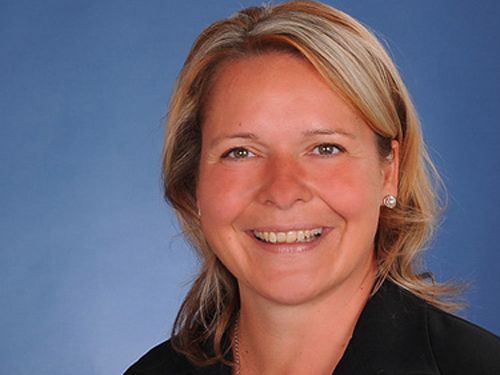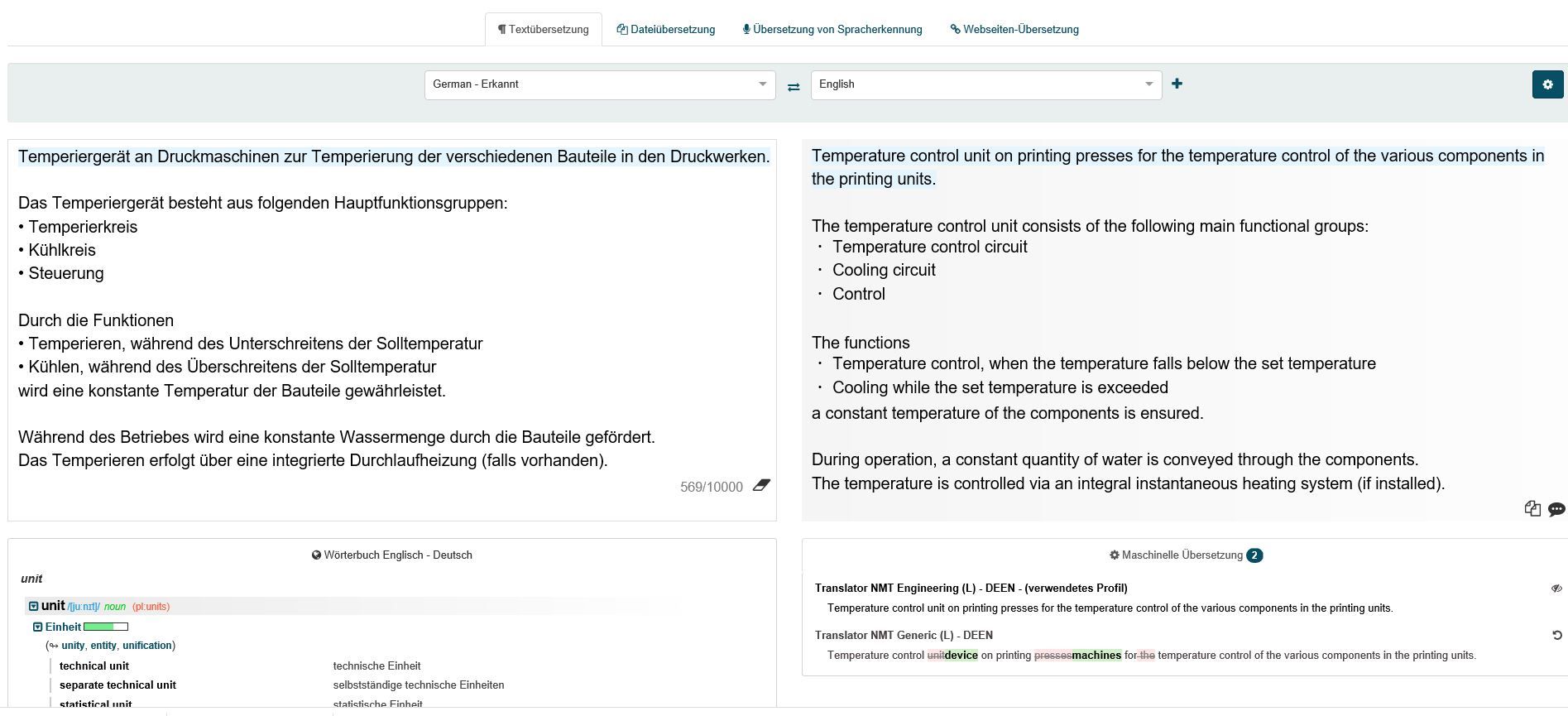“The future lies in Machines” - gds presents Translation Engine PLURAVOX
- Own translation engine available with immediate effect
- Specialized for mechanical engineering
- Post-editing workload is halved
Sassenberg, September 08, 2021 – Industry-specific terminology, comprehensive data protection, high-quality raw translations: gds GmbH presents its new translation engine PLURAVOX specifically for mechanical engineering. Individual texts have been used to train the in-house development in industry specific terminology, offering far more accurate translations that require less post-editing.
“With PLURAVOX, mechanical engineers are ideally equipped to meet the ever increasing demands on the translation of their technical documentation,” says Michaela Gorisch, Managing Director of gds-Sprachenwelt. Improved raw translations, she says, save a lot of time, which offers real added value and can also significantly reduce costs. “In mechanical engineering, terminology is of the utmost importance, as any misunderstanding can quickly lead to both mechanical damage and personal injury. An engine specifically tailored to this segment is therefore particularly valuable.”
As recent years have shown a steady increase in the demand for high-quality technical translations, technological support is vitally important. In this regard, there is a distinction between generic and neuronal translation engines. Examples of generic systems are Google Translate or DeepL, which are trained with a variety of terminologies from a wide range of disciplines. This quickly creates problems in technical documentation, because one and the same term can have different meanings depending on the context. In the translation process, this creates uncertainty as to which of the terms in question is correct, and the likelihood of an incorrect translation increases.
Generic engines under test
At gds Sprachenwelt, this posed the question whether the quality of the raw translations of such a generic engine would suffice and whether the required post editing work would remain within a scope that would facilitate the desired cost reduction and time savings while maintaining the required high quality. To get a reliable answer, the three popular generic engines – DeepL, Google Translate and RWS – were tested for a year based on selected industries and languages.
The translation projects were created in the usual way using the CAT tool, and pretranslated as usual using the customer's TM. The respective generic engine, with a deduction of 1 percent as translation source, was attached during a second step.
The evaluation showed that while the quality of generic engines is quite impressive, their terminology and sentence structure resulted in an increased workload during the post-editing phase. Terminology often had to be changed or sentences had to be translated from scratch. Due to the types of errors, their frequency and severity, it was finally decided that, for legal and safety-relevant texts of mechanical engineering, the effort of subsequent manual correction is clearly too high – the idea for PLURAVOX was born.
Specific training data for an optimal result
PLURAVOX works differently because this neural engine has been enriched exclusively with specific mechanical engineering terminology which gds has developed over many years of routine work with customers in the industry. The result – the rough draft of the translation is already more accurate and of higher quality. The translations are available at the push of a button and the post-editing workload is halved, which is also noticeable in terms of costs.
The new engine is initially available for the language pair German <-> English, with further European languages to follow in the next months. Thanks to the use of the solution in its own cloud or on-premise, full data control is guaranteed at all times. All translations and text modules are stored in the Translation Memory System (TMS) for possible reuse. “Many of our clients have already tried but were not satisfied with generic solutions,” says Michaela Gorisch. However, the increasing demand for high-quality translations can hardly be met without technological support. The gds expert feels certain that “the future of translation lies in machines”.

Michaela Gorisch, Managing Director of gds Sprachenwelt GmbH







